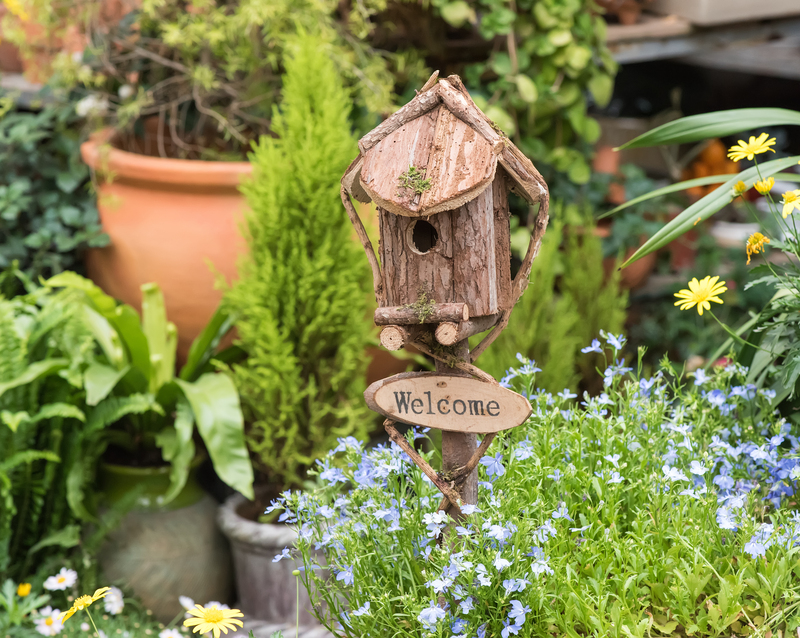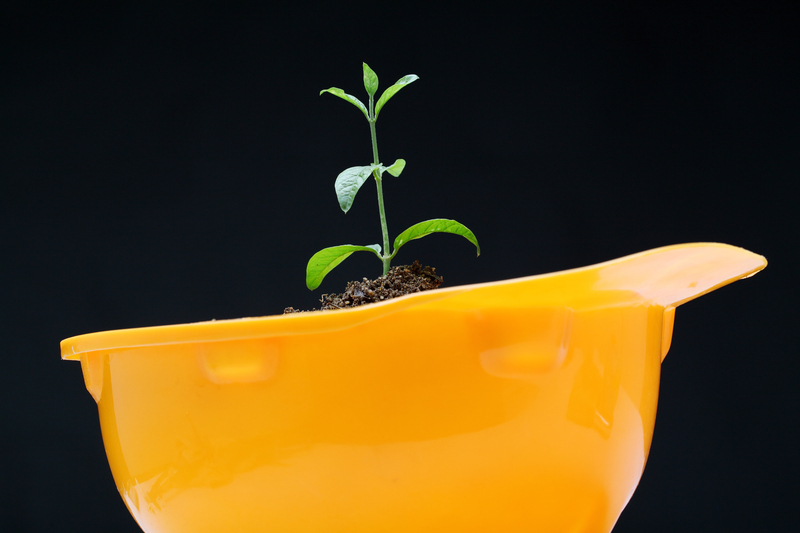Eco-Friendly Tips for Recycling Pots and Pans in Your Home
Do you have old pots and pans gathering dust at the back of your kitchen cabinets? Many people don't realize that when cookware becomes worn out or unusable, there are sustainable methods to dispose of them. Discover insightful and environment-friendly ways to recycle, repurpose, and responsibly handle your kitchen cookware with our comprehensive guide.

Why is Recycling Pots and Pans Important?
Metals like steel, aluminum, copper, and even some ceramic-based cookware can have a significant environmental impact when not disposed of correctly. Recycling and upcycling cookware not only prevents landfill overflow but also contributes to resource conservation and energy savings. Recycling helps:
- Reduce greenhouse gas emissions by lowering the demand for new raw materials.
- Save natural resources, such as ores and minerals used in cookware production.
- Minimize landfill waste, as metal and ceramic items degrade very slowly, leading to pollution.
- Contribute to the circular economy by supporting industries that use recycled materials.
Common Materials Found in Cookware
Before recycling, it's useful to identify the material of your pots and pans. Components typically include:
- Stainless steel: Durable and 100% recyclable.
- Aluminum: Lightweight and commonly recycled.
- Copper: Valuable, but less common in general cookware.
- Ceramic or glass: More challenging but some recycling options exist.
- Non-stick coatings: May complicate recycling unless the coating is removed.
- Cast iron: Heavy and fully recyclable, often ideal for upcycling as well.
How to Prepare Pots and Pans for Recycling
Proper preparation maximizes the chances that your old kitchenware will be reclaimed and not sent to landfill. Here are the essential steps:
- Remove non-metal parts: Unscrew or pull off plastic handles, knobs, or silicone grips. Many recycling centers only accept pure metal items.
- Clean thoroughly: Wash off old food, oil, and grime. It makes handling easier for recycling staff.
- Separate materials: If your items are a mix of materials, separate them as much as possible (for example, glass lids from metal pots).
Recycling Options: Where Can You Recycle Old Pots and Pans?
The first step in eco-friendly cookware recycling is knowing where to take them. Consider these options:
- Local Scrap Yards: Many metal recycling facilities accept old pots and pans, especially those made from steel, iron, or aluminum.
- Municipal Recycling Programs: Check your city's curbside or drop-off recycling services for metal items. Note that non-stick cookware may not be eligible.
- Household Hazardous Waste Events: Some communities accept cookware with non-stick coatings during special collection events.
- Retail Take-Back Programs: Certain stores or brands occasionally run programs where you can drop off used cookware for safe recycling.
- Donation Centers: If the pots and pans are still usable, donation is an eco-friendly way to extend their life and help others in need.
Creative Ways to Repurpose and Upcycle Old Cookware
Not every piece of cookware needs to be recycled in the traditional sense. Upcycling and creative DIY projects are sustainable alternatives that give your old pots and pans a new life. Here are some inventive ideas:
1. Planters and Garden Decor
- Turn pots and pans into quirky plant holders: Drill a few drainage holes at the bottom, add soil and your favorite flowers or succulents.
- *Hanging gardens:* Hang shallow pans with chains for patio or balcony displays.
2. Artistic Wall Hangers
- Create eye-catching decorations: Arrange colorful pans on your kitchen wall for a rustic, farmhouse look.
- Chalkboard pans: Paint the inside of pans with chalkboard paint for fun, reusable message boards.
3. Bird Feeders and Bird Baths
- *Nature-friendly reuse!* Mount an old frying pan or saucepan on a pole or hang it from a tree branch as a unique bird feeder or shallow bird bath.
4. Organization Tools
- Tidy up your home: Attach old pots to the wall for kitchen utensil holders or garage storage.
- Desk organizers: Small saucepans make excellent container organizers for craft rooms or offices.
5. Candle Holders and Lanterns
- Create rustic candle holders or lanterns by filling pots with sand and placing a candle inside, or cutting designs into metal and adding a small tealight.
Remember, upcycling is only limited by your creativity. Involve your family in these projects for an enjoyable, eco-conscious activity!
Safe Disposal of Non-Stick and Teflon-Coated Pans
Non-stick cookware requires extra care due to the chemicals used in Teflon and similar coatings. Here's how to handle non-stick pans sustainably:
- Check with your local recycling center to see if they accept non-stick cookware. Some facilities have specialized processes for these items.
- If recycling is unavailable, consider upcycling non-stick pans for non-cooking uses, such as plant pots or craft supplies.
- Never burn or incinerate Teflon pans, as this can release toxic fumes.
- When in doubt, dispose of non-stick pans during community hazardous waste collection events.
Are Pots and Pans with Mixed Materials Recyclable?
Pots and pans often contain a combination of metals, plastics, and glass. If you're unable to thoroughly separate these, recycling centers may not accept them. In such cases:
- Contact specialty scrap metal businesses, which may be able to separate and reclaim materials.
- Inquire with the brand manufacturer for take-back or recycling programs.
- Consider upcycling these items for decorative purposes instead of landfill disposal.
Tips to Extend the Lifespan of Your Cookware
While recycling is excellent, the most sustainable option is to extend the usable life of your kitchenware. Here are essential maintenance tips:
- Follow care instructions for your cookware type; avoid using metal utensils on non-stick surfaces to prevent scratches.
- Hand-wash pots and pans whenever possible, as dishwasher cycles may wear coatings and coatings away prematurely.
- Store pots and pans properly to avoid dents and scratches - use pan protectors or hang cookware where feasible.
- Repair minor dents or loose handles instead of replacing the entire item.
Understanding the Environmental Benefits of Pot and Pan Recycling
Recycling or reusing your old pots and pans isn't just about creating space in your kitchen. It's about contributing to the well-being of our planet. Consider these environmental impacts:
- Preservation of natural resources: Every recycled aluminum pan saves enough energy to power a laptop for hours.
- Pollution reduction: By recycling cookware, you help reduce mining waste and prevent toxic elements from leaching into soil or water.
- Support for eco-friendly industries: Buying and recycling recycled-content products encourages manufacturers to use reclaimed materials.
- Zero-waste kitchen: Practicing responsible cookware disposal is a significant step toward a zero-waste household.
Buying Eco-Friendly Cookware: Planning for Future Recycling
If you're purchasing new pots and pans, keep eco-friendly practices in mind:
- Choose cookware made from recyclable materials like stainless steel, cast iron, or untreated aluminum.
- Look for brands with take-back or recycling programs.
- Avoid low-quality non-stick or composite materials that are hard to recycle and wear out quickly.
- Invest in durable pieces that last longer and have minimal environmental impact over their lifetime.

Summary: Key Eco-Friendly Tips for Recycling Pots and Pans
Ready to make the sustainable choice with your old cookware? Here's a concise summary of eco-friendly pot and pan recycling tips:
- Identify the material of your cookware before disposal.
- Separate non-metal parts and clean items thoroughly.
- Use local recycling or scrap metal facilities for eligible materials.
- Upcycle or creatively reuse cookware for home and garden projects.
- Donate usable pots and pans to local charities or thrift stores.
- Follow special procedures for non-stick and composite-material cookware.
- Buy future cookware with recycling in mind, favoring durable and recyclable materials.
Conclusion: Every Action Counts for a Greener Kitchen
Embracing eco-friendly tips for recycling pots and pans in your home is a simple yet powerful way to support environmental sustainability. Through responsible disposal, creative upcycling, and conscious purchasing, you can reduce waste and conserve valuable resources. Your choices add up - so start recycling, upcycling, and reusing your kitchenware today, and set a green example for your community!
Do you have other creative or effective ways to recycle or reuse old pots and pans? Share your tips in the comments or spread the word to inspire eco-friendly practices in every home!